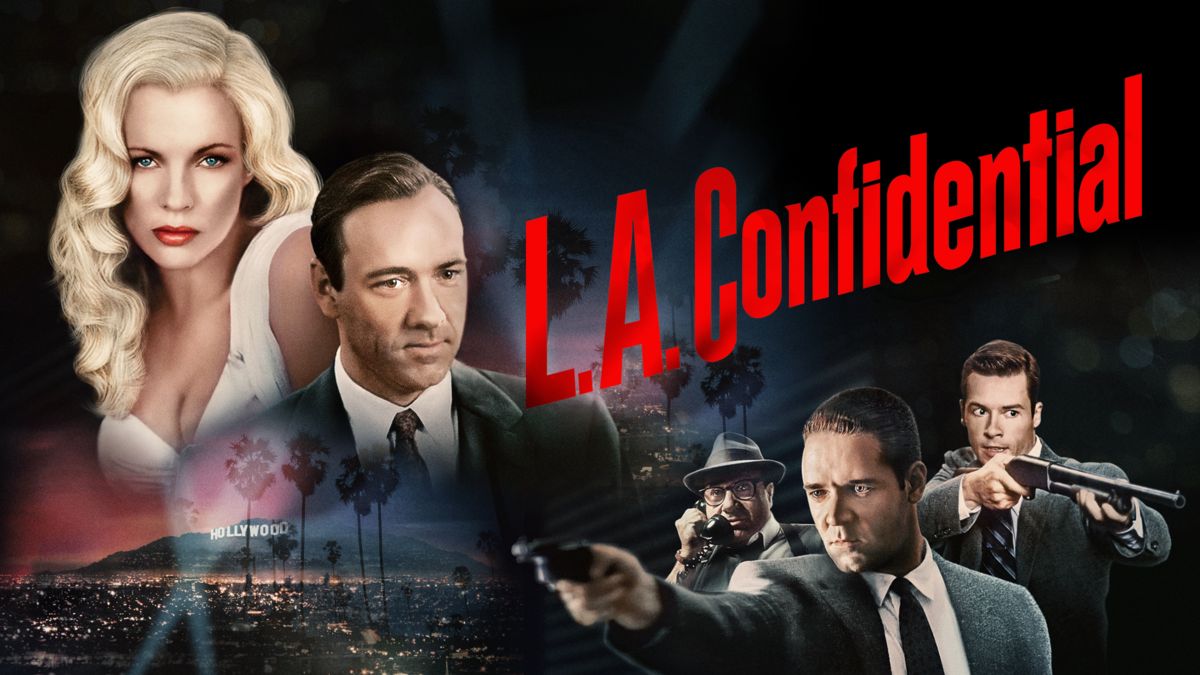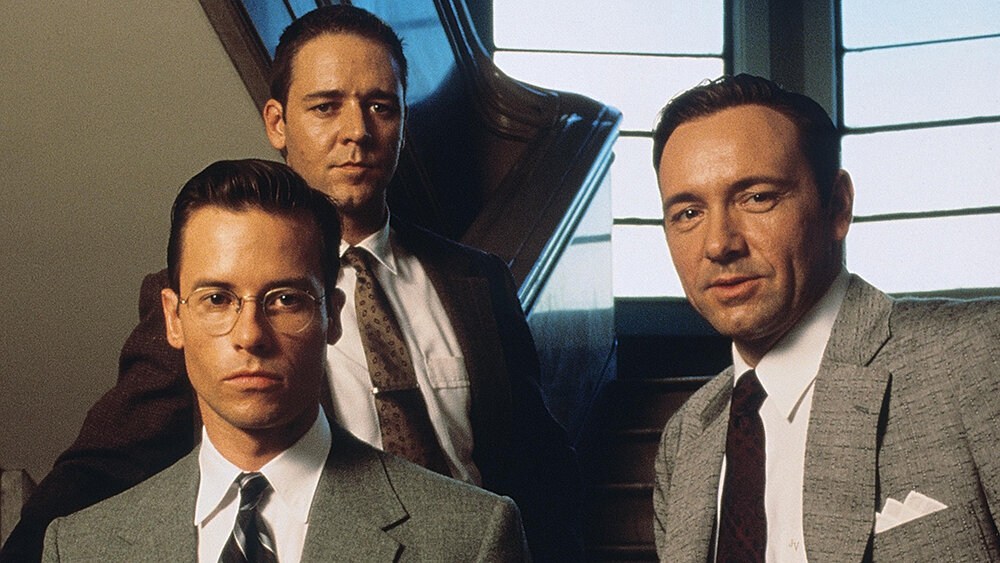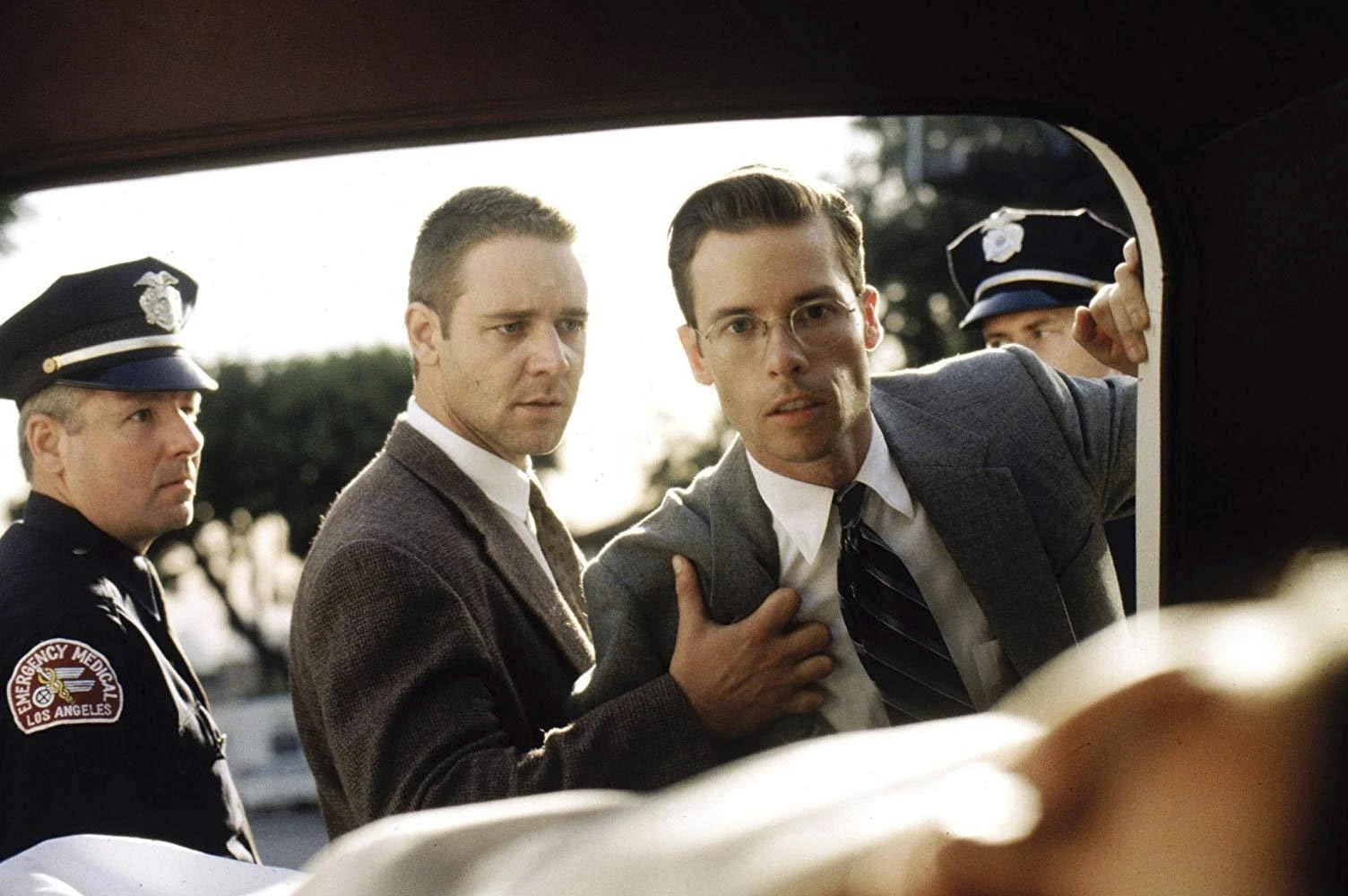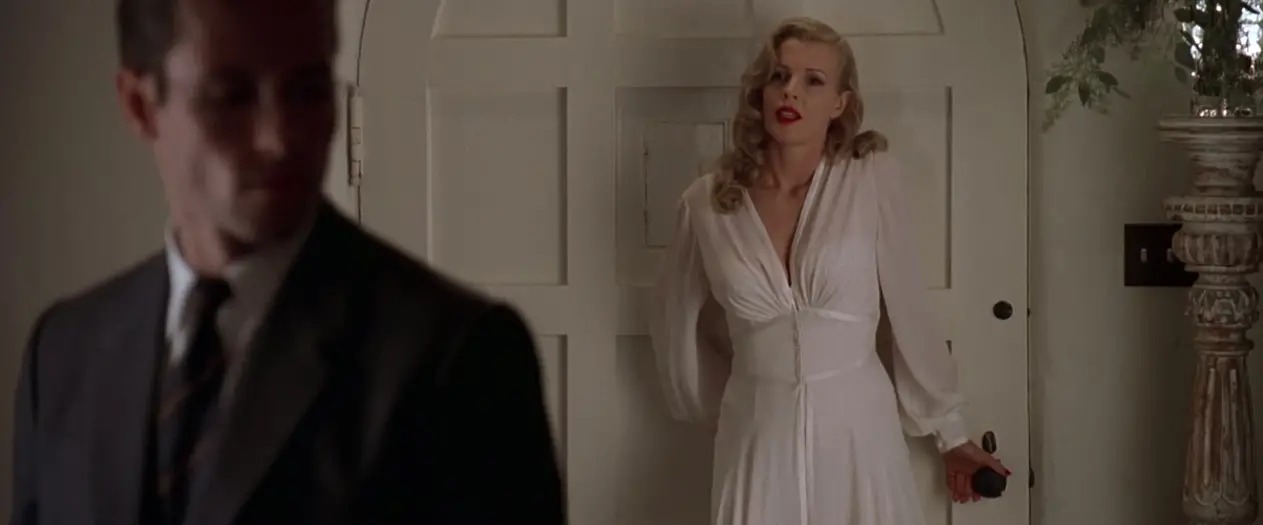L.A. Confidential (1997)

L.A. Confidential is a 1997 neo-noir crime film directed by Curtis Hanson, who also produced and co-wrote the screenplay with Brian Helgeland. The film is based on James Ellroy’s 1990 novel of the same name, which is the third book in Ellroy’s L.A. Quartet series. Set in 1950s Los Angeles, the film explores the dark side of the city, blending corruption, violence, and mystery with complex characters and a gripping storyline. The film stars Kevin Spacey, Russell Crowe, Guy Pearce, and Kim Basinger, each giving memorable performances that enhance the film’s noir atmosphere.
The story revolves around three police officers, each with a different background and set of motivations, who become involved in a complex web of crime and corruption. Bud White (played by Russell Crowe) is a violent but morally-driven officer with a strong sense of justice. He works alongside the smooth-talking and ambitious Jack Vincennes (Kevin Spacey), who is more interested in his Hollywood connections and media fame than in actual policing. The third officer, Ed Exley (Guy Pearce), is an intelligent but idealistic detective who strives to follow the rules and rise within the police force. Their lives intertwine when a high-profile murder case involving the city’s elite draws them into a web of deceit and danger.
As the investigation unfolds, the three men uncover a network of corruption that extends beyond the police force and into the world of organized crime, politics, and Hollywood. They must navigate through lies, betrayal, and personal demons while trying to bring the criminals to justice. Along the way, they meet a variety of colorful and morally ambiguous characters, including femme fatale Lynn Bracken (Kim Basinger), a prostitute who becomes involved with both White and Exley. Her relationship with the officers adds further complexity to the plot, blurring the lines between right and wrong.

The film’s neo-noir elements are evident throughout, from its dark, atmospheric cinematography to its morally ambiguous characters and plot twists. Like many classic noir films, L.A. Confidential explores themes of corruption, betrayal, and the struggle between personal integrity and professional duty. The characters, particularly White, Exley, and Vincennes, each grapple with their own sense of justice and personal ethics, which makes the film’s narrative both compelling and unpredictable.

The climax of the film is a thrilling and intense series of revelations that expose the full extent of the conspiracy. Each character faces a turning point, and the choices they make determine not only their futures but also the fate of the city itself. The film’s ending ties up the story with a sense of both resolution and ambiguity, typical of the noir genre, leaving the audience to question the true nature of justice and morality.

In conclusion, L.A. Confidential is a masterful neo-noir film that combines a compelling crime story with deep, multifaceted characters. Curtis Hanson’s direction and the powerful performances from the cast create a tense and engaging narrative that keeps the audience on edge from start to finish. The film’s exploration of corruption, power, and personal integrity within the context of 1950s Los Angeles makes it a standout in the genre, and it remains a classic of modern crime cinema.











